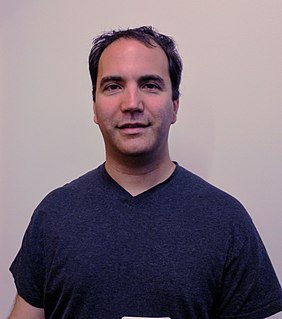A Quote by Sarah Parcak
Scientists use satellites to track weather, map ice sheet melting, detect diseases, show ecosystem change... the list goes on and on. I think nearly every scientific field benefits or could benefit from satellite imagery analysis.
Related Quotes
The only technology that can 'see' beneath the ground is radar imagery. But satellite imagery also allows scientists to map short- and long-term changes to the Earth's surface. Buried archaeological remains affect the overlying vegetation, soils and even water in different ways, depending on the landscapes you're examining.
Sometimes you get there in spite of the route Losing track of your life and what it's about The road seems to know when to straighten right out... I could wonder if all of it led me to you I could show you the arrows and circles I drew I didn't have a map, it's the best I could do On the fly and on the run































